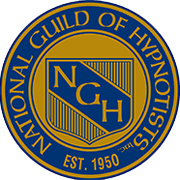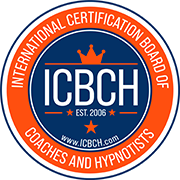Teens with ADHD
Adolescents with ADHD: How to Get Ahead of the Game!
Have you ever noticed how ADHD adolescents have a special quality such as creativity, problem-solving skills and high energy levels? ADHD is hard, but learning how to use these natural gifts can turn the obstacles into growth and opportunity.
If we are going to care for an ADHD teen, it isn’t about the textbook cures – it’s about treating them holistically in accordance with their unique worldview. With targeted interventions that adapt to, rather than resist, their tendencies, parents and caregivers can empower teens to thrive in and out of school.
The Power of Daily Routines
Predictability and structure are important for a successful ADHD treatment plan. By making a routine each day, teens stay organized and don’t worry as much about next. Begin by having morning and evening routines to break out complex tasks into manageable chunks. For instance, preparing clothes the night before and a morning to-do list can turn chaotic mornings into smooth crossings.
Have a number of alarms as time clocks during the day to keep things going. Early morning routines could be yoga or stretching to focus on before school. Evening routines can take a breather by relaxing and, maybe, adding something soothing such as reading or journaling.
Goal-Setting That Works
Converting big tasks into manageable steps is key for ADHD teens. Not "shrink your hair", but build a detailed list: make bed, take clothes out, clear desk. It stops you from feeling overwhelmed and gives you confidence with a few wins a week.
Match goals with interests to enhance motivation. If your teen loves music, use songs they know as deadlines. Goals — Create tangible, measurable targets (such as "read 20 minutes") instead of empty ones like "study more".
Positive Reinforcement Strategies
Positive reinforcement is a big part of good behaviour management. Praise behaviours with verbal praise, charted rewards and earned privileges. Make sure to compliment effort and progress, not perfect result. You can also be encouraged with a simple "I noticed how hard you organized your backpack." This is more powerful than bland praise.
Develop a behavior sheet to track daily results and have teens earn points towards valuable prizes. Be consistent with reinforcement but do not get dependent on outside reinforcement.
Building Open Communication
Dedicated, open conversations with adolescent help them work through struggles and victories. Use calm periods for crucial talks, not stressed and angry periods. Answer the questions "what was your best moment of the day?" open ended questions. to encourage detailed responses.
Be sure to meet with each other once a week to talk about challenges and to celebrate wins. These conversations are about gaining trust and helping parents to better understand their teen’s individual needs.
Immediate Feedback and Learning
Fast and concrete comments tell teens where they’re doing well and where they can go wrong. For criticism, point to the action, not the person. You could be like "I feel like your homework is more neat when you use your planner" as opposed to "You’re so unorganized".
Don’t wait to hear from them during routines, homework and social situations. This urgency also ensures that good habits are held, and a bad one corrected before it becomes a routine.
Promoting Self-Compassion
: Teach teens to be patient with themselves. Don’t be sappy with yourself and don’t tell them when they’re being critical. As simple as "I’m trying" or "I can change what I’m thinking" can rewrite negative thought patterns.
Do mindfulness practices together and practice acceptance not judgement. When they do fail, teach teens to care for themselves the way they’d care for a friend.
Creating Balance
A healthy life has a huge influence on ADHD symptoms. Set regular sleep schedules and eat right. Limit screen time and make sure you move often – even moving a bit every 10 minutes can make you more attentive and less anxious.
Give your kids reasonable boundaries of how much time you’re spending on tech, and have tech-free zones or periods of the day. Combine routines with leisure time to avoid burnout and emotional stability.
Academic Success Strategies
Set tasks and due dates in electronic planners or apps. Organize homework into 25-minute blocks, Pomodoro Technique, taking short breaks along the way. Invest in a private study area without interruptions and invest in noise-cancelling headphones for work.
Move while studying – walk when checking flashcards or bounce on an exercise ball while reading. : Color-code different topics and arrange supplies in areas.
To Become Successful By Knowing and Inspiring
Parenting a teen with ADHD is a process that takes time, patience, and a willingness to tailor approaches to the person. With these whole-person strategies – from routine to self-compassion – parents and carers can foster a space in which ADHD teenagers can find their unique talents and learn life skills.
Keep in mind that things don’t always go exactly a particular way and everyone doesn’t achieve the same. The trick is to stay in regular contact, give yourself small successes, and keep tweaking those tactics to accommodate your teen’s needs as they change. Support and resources can give teens with ADHD the resiliency and strength to manage both present and future challenges.







